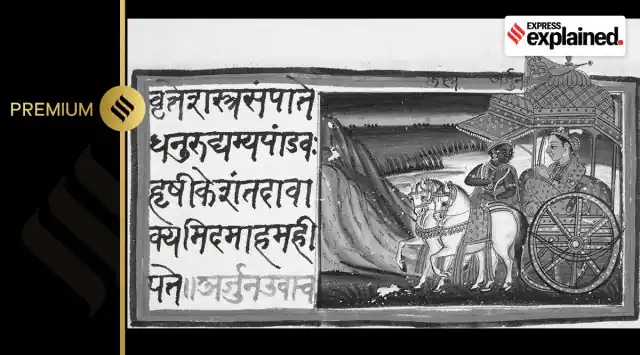Sanatan Dharma, often likened to Hinduism, has recently stirred controversy following DMK leader Udhayanidhi Stalin’s controversial remarks. BJP leaders have vehemently defended it, labeling Udhayanidhi’s statement as an attack on their faith.
Etymology and Ancient Origins
The term “Sanatan Dharma” finds its roots in Sanskrit, where it conveys the profound notion of “eternal religion” or “eternal law.” Alternatively, it is interpreted as an “unshakeable, venerable order” or an “ancient and enduring guideline.” Mythologist and author Devdutt Pattanaik clarified that the word “sanatan” does not appear in the Vedas, the ancient Hindu scriptures.
Pattanaik explained, “The word ‘sanatan’ began to be used in the Bhagavad Gita, and it pertains to the knowledge of the soul, which is considered eternal. Sanatan Dharma encompasses religions that believe in the eternal nature of the soul and the concept of rebirth.”
Political Controversy
The recent controversy surrounding Sanatan Dharma erupted when DMK leader Udhayanidhi Stalin equated it to “mosquitoes, dengue, malaria, and corona.” His statement was met with outrage from several BJP leaders, with party president J P Nadda asserting that Udhayanidhi’s comments amounted to an attack on their religion.
This incident highlights the intricacies and sensitivities associated with religious terminology in India, emphasizing the importance of understanding the historical context and diverse interpretations of concepts like Sanatan Dharma.
Conclusion
Sanatan Dharma, often synonymous with Hinduism, has a rich and complex history that extends beyond conventional definitions. Its etymological roots in Sanskrit and its association with the eternal nature of the soul make it a subject of profound philosophical exploration. However, recent political controversies remind us of the need for responsible discourse and respectful engagement with religious concepts in our diverse and multicultural society.
- Sanatan Dharma, often equated with Hinduism, has been at the center of a recent political controversy in India.
- The term “Sanatan Dharma” derives from Sanskrit and translates to “eternal religion” or “eternal law.”
- Mythologist Devdutt Pattanaik clarifies that the term emerged in the Bhagavad Gita, signifying knowledge of the eternal soul.
- DMK leader Udhayanidhi Stalin’s recent remarks about Sanatan Dharma sparked outrage among BJP leaders.
- The incident underscores the importance of understanding the historical context and diverse interpretations of religious concepts in India’s diverse society.


